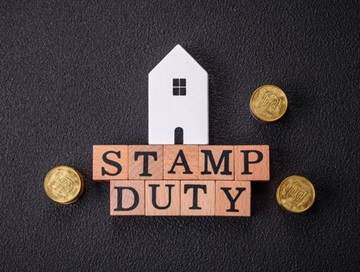Residential Tenancies Act Reforms: FAQ
7 June 2023"On Friday 26 May 2023 the State Government announced amendments to the Residential Tenancies Act. We discuss the current regulations and what will change under the new legislation."
.tmb-newsdetail.jpg?sfvrsn=9f6f18da_1)
On Friday 26 May 2023 the State Government announced amendments to the Residential Tenancies Act.
The announcement has led to many questions. REIWA has put together some answers to the most common queries and outlined the next steps.
This information will also be placed on www.reiwa.com and members are welcome to share that link with their clients.
What are the reforms?
The proposed changes include:
- No grounds terminations to remain unchanged
- Rent bidding to be prohibited
- Rent increases to be limited to once a year
- Tenants will be able to have pets in most cases
- Tenants will be able to make certain minor modifications to the rental premises
- The release of security bonds at the end of a tenancy will be streamlined, allowing tenants and property owners to apply separately regarding how bond payments are to be disbursed
- Disputes over bond payments, as well as disagreements about pets and minor modifications will be referred to the Commissioner for Consumer Protection for determination
Full details of these reforms have not been announced and REIWA will be working with the Government to determine pragmatic and practical outcomes for all parties.
When will they come into effect?
The next step is to draft the legislative amendments and regulations. The Government anticipates they will be put to Parliament by the end of this year and come into effect in the second half of 2024. Until then it is business as usual, and REIWA will be working with the Government on the details of the proposed changes.
There will be no changes to no grounds termination
Property owners will still be able to end a tenancy without providing a specific reason.
There are already many rules and processes in place surrounding ending a tenancy.
For example, during a periodic tenancy the property owner must give the tenant 60 days’ notice to end the tenancy. If the property is sold, the tenant must be given 30 days' notice.
During a fixed-term tenancy property owners generally cannot end the agreement before the due date without exceptional reasons. As the due date approaches the tenant must be given 30 days’ notice of intention to either renew or not renew the lease. The property owner cannot end the lease because the property has been sold or they want to move back in unless they come to a mutual agreement with the tenant.
Tenants seeking more security in their tenure should consider fixed-term leases.
If a tenant finds themselves being summarily ‘kicked out’ of the home they rent without proper notice contact the free REIWA Information Service on 9380 8200 during business hours for guidance.
The retention of no grounds terminations does not mean tenants are at risk of eviction. An eviction is not the same as a termination. It is a last resort for property owners and usually signifies a serious breakdown in the owner/tenant relationship.
Again there are processes to be followed and tenants cannot be evicted without a court order. Even then they may be able to have the order suspended for up to 30 days.
The Residential Tenancies Act also protects tenants if they believe any action to evict them is due to complaints they have made to a public authority in the previous six months, or other steps they have taken to enforce their rights. In such cases, the tenant can remain in the property until the matter goes to court where they can argue against the ending of the agreement.
Rent bidding will be prohibited
Rents will only be able to be advertised at a fixed amount and not a price range.
Property managers and private landlords will be prohibited from pressuring or encouraging tenants to offer more than the advertised rent.
The Government has indicated property owners/property managers and agencies caught engaging in rent bedding may face fines of $5000 for individuals and $20,000 for agencies.
The government will also consider using secret shoppers to uncover rent bidding.
REIWA does not encourage rent bidding, does not believe it is prevalent among its members and supports this change.
However, the reform will not prevent tenants from offering more, or less, than the advertised rent. This is not rent bidding.
Rent increases will be limited rent increases to once per year
What is the current situation?
Rents can be increased every six months in a periodic tenancy. They can also be increased every six months in a fixed-term tenancy if it is written into the lease. Most fixed-term leases run for 12 months and in many cases the rent is only reviewed at the end of the lease anyway.
If tenants are finding their rents are increasing more frequently than this, they are encouraged to contact REIWA’s free Information Service on 9380 8200 during business hours for guidance.
What will change?
When the legislation is passed it is expected that rents can only be increased once per year in both periodic and fixed term tenancies.
REIWA will seek to confirm that the annual limit will only apply to new leases and lease renewals from the date the legislation is enacted, unlike in Queensland where the new law voided all contracts with six-monthly increases included.
There are currently no plans to place a cap on the amount the rent can be increased by, nor are there plans to freeze rents.
Pets in rental properties
What is the current situation regarding pets?
About one third of rental bonds include a pet bond, so many property owners already welcome pets. Tenants are required to get permission from the property owner before getting a pet.
What will change?
The reforms state tenants will be able to have pets in most cases.
Property owners will only be able to refuse consent on certain grounds and with the approval of the Commissioner for Consumer Protection. However, they will be able to place conditions on the keeping of a pet.
The ‘certain grounds’ have not been determined. REIWA expect they will include things like the suitability of the pet for the property, allergies and strata by-laws. REIWA will be working with the Government to determine a list of appropriate reasons.
REIWA will also be working with the Government regarding the pet bond. At the moment it only covers fumigation and is capped at $260 regardless of the number of pets at the property. Discussions will include increasing either the pet bond or overall bond to cover damage by pets.
Minor modifications to rental properties
What can tenants do now?
The changes tenants can make to a property currently depend on the agreement with the property owner. The agreement can prohibit the tenant from making alterations or attaching things like picture hooks, or it may permit changes with the owner’s consent.
Some changes are permitted without consent. Victims of family and domestic violence can change the locks or make certain security upgrades without the owner’s permission. Some furniture, such as bulky bookcases, cupboards, flat-screen TV’s and mobility aids, can be fixed to walls if it helps protect the safety of children or a person with a disability.
What will change?
Under the reforms tenants will be able to make certain minor modifications to the rental premises and the property owner will only be able to refuse consent on certain grounds.
There has been discussion in the media that this will mean painting walls. However, at this point there is no set list about what “certain minor modification will include”. The Government has indicated there may be two tiers of modifications, but what is in each tier has not been determined. REIWA will be working with the Government to develop a list of reasonable modifications.
The Government indicated tenants may be required to restore the property to its original condition at the end of the tenancy. This is a significant issue for investment property owners and REIWA will work to clarify under what circumstances they will be required to restore the property.
Release of security bonds
What happens with bonds now?
The process for releasing bonds is quite involved and any disputes need to be settled by a magistrate, which can be time consuming.
What will change?
This process will be streamlined, allowing tenants and property owners to apply separately regarding how bonds are disbursed.
REIWA and its members are seeking clarification regarding this process, including whether a final inspection must take place before the tenant can be paid and how can it be confirmed that this has been done so that a tenant cannot quickly claim bond and avoid paying for damage.
Disputes
How are disputes managed now?
If disputes about a rental property cannot be resolved privately or by using Consumer Protection’s free reconciliation service tenants and property owners/property managers will need to apply for an order from the Magistrates Court of Western Australia.
The most common disputes that go to court include:
- disputes about the return of bond money at the end of a tenancy
- overdue rent
- damage to property
- maintenance of the premises
- problems when ending tenancy agreements.
Unfortunately, this is a time-consuming process and has often resulted in inconsistent decisions.
What will change?
Under the reforms, disputes over bond payments, as well as disagreements about pets and minor modifications will be referred to the Commissioner for Consumer Protection for determination.
Placing disputes under the control of the regulatory body is expected to result in more consistent outcomes, setting clear guidelines for all involved in the industry. REIWA is concerned that Consumer Protection may not have the resources to adequately handle the disputes and the dispute process also needs to be clarified.
.tmb-rcarousel.jpg?sfvrsn=24ed8b20_1)







.tmb-rcarousel.png?sfvrsn=3619a769_1)
